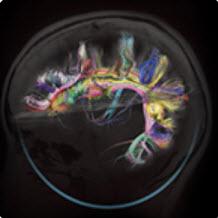
The National Institutes of Health is hosting the Multimodal TMS Speaker Series to bring together the leaders in the field conducting research using non-invasive brain stimulation and functional imaging including EEG and fMRI. The event will be broadcast via web-ex and archived for later viewing.
- Dr. Colleen Hanlon will be speaking on May 31st, 2:30 pm.
- View Eventbrite for more event information
Title:
“From mapping to modulation: using intrinsic neural architecture to develop transcranial magnetic stimulation as a new treatment for craving and control disorders.”
Description:
In this talk I will introduce the audience to the primary frontal-striatal circuits which are involved in governing limbic arousal and executive control, and a logical progression of 5 studies that we have done to “map” and then ‘modulate’ these circuits in cocaine dependent individuals. The talk will include a primer on basic frontal-striatal circuitry which is involved in craving and reward as well as executive control. I will then introduce the studies we have done which have used multiple neuroimaging and stimulation approaches to examine these circuits. The talk will conclude with a summary of the lessons we have learned, the challenges we have faced, and the directions which we think are required in order to move this field to the next phase of treatment development.
Bio:
The overall theme of Dr. Hanlon's scientific research has been to map neural circuit irregularities in substance dependent populations and then modulate these circuits using brain stimulation techniques or neurofeedback. She is leading NIH-funded research directed at 1) longitudinal investigations of neural connectivity in cocaine and alcohol dependent individuals undergoing substance abuse treatment, and 2) developing patient-tailored brain stimulation protocols which may either enhance cognitive control or attenuate craving in treatment seeking individuals. Dr. Hanlon's trainees and collaborators are pioneering non-invasive neuromodulatory strategies for treating addiction including continuous Theta Burst Stimulation to the medial prefrontal cortex, and real-time fMRI biofeedback. Dr. Hanlon has also received independent funding to pursue research in PTSD, Tourette Syndrome, and Stroke rehabilitation. She is dedicated to mentoring graduate students, medical students, medical residents, and other faculty members seeking training in neuroimaging and brain stimulation.
